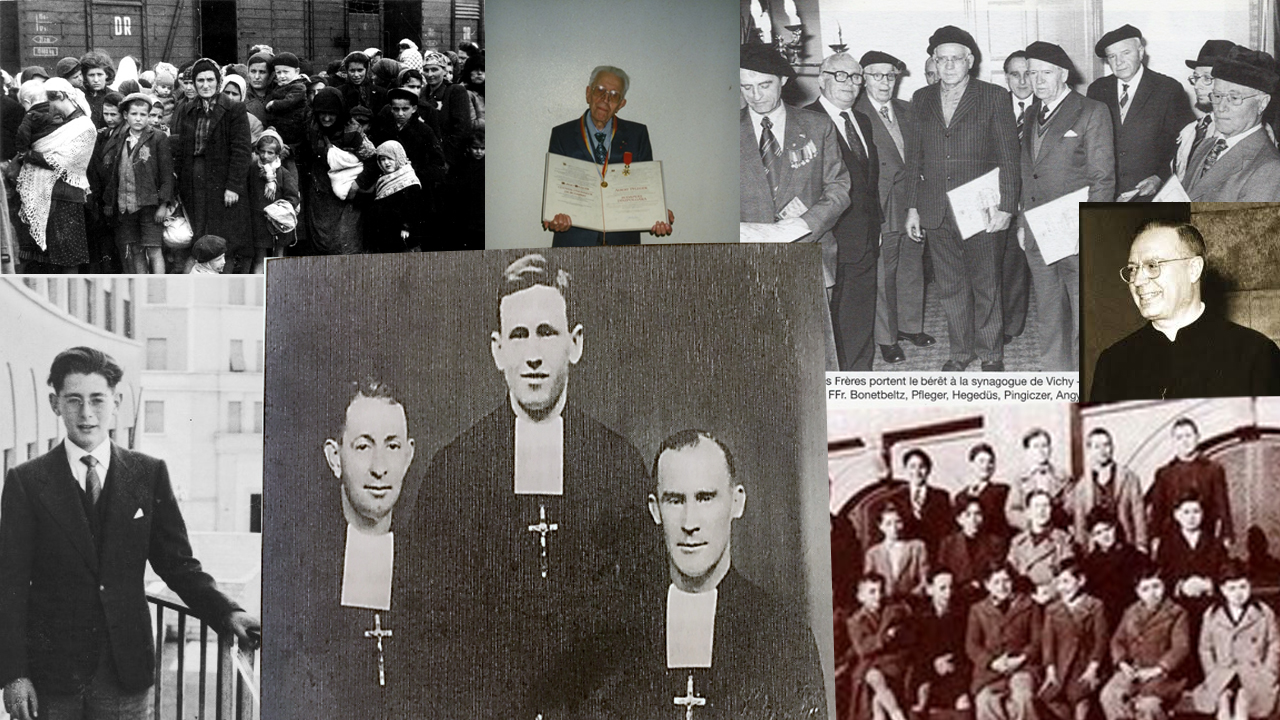
Courageous Marists
Article by Br. Ben Consigli, Councillor General
Download here PDF: English | Español | Français | Português
The consequences of the Covid-19 pandemic are – and will be – defined by choices. Myriad stories have already been told in print, audio, video, and photography. We’ve seen or heard of makeshift morgues in refrigerated trucks in New York City or ice rinks in Spain; selfless doctors and nurses struck down by the virus; and countless others on the front lines whose courage serves as an example of self-sacrifice for the whole. We are witnessing many acts of courage, generosity, compassion, and community that provide inspiration and underline the power of our humanity.
The weeks in “lockdown” got me to thinking about why people act courageously. I fell to pondering the biblical story of the widow’s mite. Jesus, who has traveled with his disciples to Jerusalem for the Passover, is watching those who come to make their offerings to the temple treasury. He draws the disciples’ attention to a widow who has given two small coins, saying that while others gave out of their abundance, she gave “all that she had, even all her living.” How would he have known this? Perhaps she gave one coin, hesitated, and then, in defiance of circumstance, tossed the other after it. The meaning of the story is that an act of true generosity is an act of courage. A number of authors, including author Stacy Mitch, called this “courageous generosity.” 1 In both Mark and Luke, the point is made that the widow has not one but two coins, together equaling one mite. Since she is a poor widow, if she had given one coin and kept one, she’d have been generous by any ordinary standard. But she gave them both. And since there was nothing in her experience to encourage the expectation of any material reward for her gesture, I think it might be best to imagine a kind of pure gallantry in it, an act of loyalty to what she loved best, a gift made freely, and in many ways courageously, in contempt of circumstance. Just as we can only practice courage in the face of fear, we can only practice generosity in the face of need.
In our Marist history, we have many examples of our Brothers who acted generously and courageously, whether it was during the revolutionary years in France in the 1830’s and 1840’s, the Civil War in Spain during the 1930’s, or the Rwandan genocide and the Islamist revolutions in the African continent in the 1990’s. But I found that not much was written about our Brothers during the Second World War.
Times of crisis generate extreme moral dilemmas: situations we cannot begin to imagine, unthinkable choices emerging between options that all seem bad, each with harms and negative outcomes. Generous courage means doing the right thing even at the risk of inconvenience, ridicule, punishment, loss of job or security, social status, and even death. This type of courage requires that a person rise above the apathy, complacency, hatred, cynicism, and fear mongering in our political systems, socioeconomic divisions, and cultural/religious differences to do “what is right” in the midst of our common humanity.
Countless of professional articles have been written about courage. These articles indicate that people who possess courage have certain characteristics which come to the forefront in times of trial or distress. Courageous people believe in themselves. They know who they are and what they stand for. They have strong values, recognize their personal capabilities, and are confident in meeting the challenges that lie before them. They are passionate and purposeful and know the difference between right and wrong. They do not just talk about honor; they live it every day. They are more likely to be trustworthy, objective, fair, and tolerant, and willing to stand up against injustice — backing their words with action. They also put other people’s needs ahead of their own and are not afraid of “swimming against the tide” or challenging the status quo. They stare adversity in the eye — running toward the problem rather than away from it. They know that saying “no” to one idea may enable them to say “yes” to another, and that old ways of doing things should not stand in the way of a better solution. Courageous people follow their intuition. If information required to make a good decision is not available, they usually follow their “gut”, their instincts, and given that, they know that it is not enough to talk about doing something — instead, they act. Courage is required to act even when one has doubts or fears about the consequences. It takes courage to make the difficult choices. Let us look at some of the actions of our Brothers during the second World War.
Click here to read all the article, with pictures: English | Español | Français | Português
